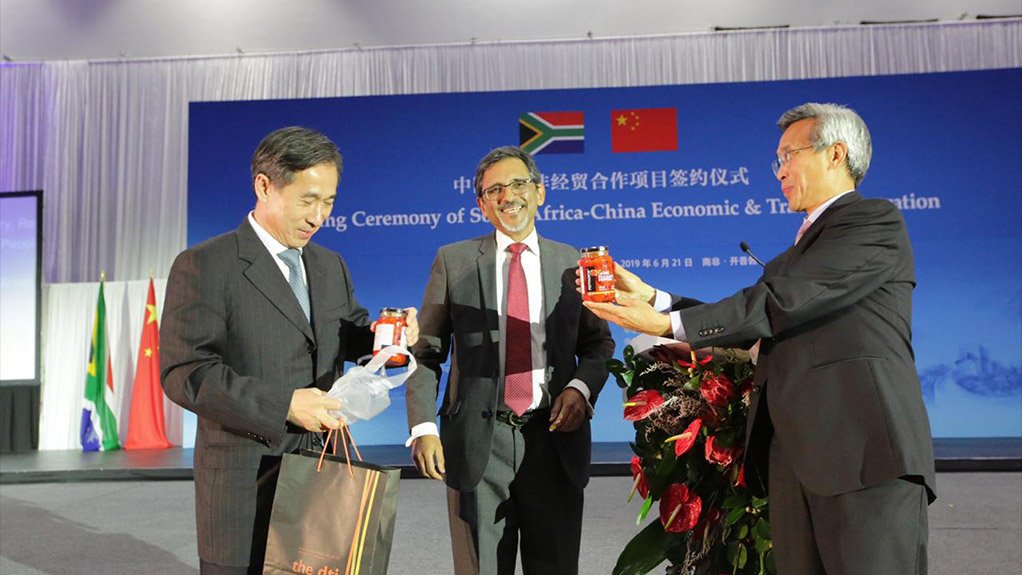Riyaz Patel
China’s ambassador to South Africa, Lin Songtian, says President Cyril Ramaphosa is the “last hope” for South Africa and that his administration must turn incentive policies into laws to secure more Chinese investment.
China is South Africa’s largest trading partner and has pledged more investment than any other country since Ramaphosa embarked on his $100 billion investment drive to haul the economy out of a slump.
While it has attracted some $55 billion in total pledges – including from Saudi Arabia and the United Arab Emirates as well – the drive has so far done little to ease crippling unemployment or boost economic growth.
“To date, there are no major infrastructure projects from China here. Why? Because we don’t only need the concept of a project,” Lin said.

Policies of extending incentives, including tax breaks, to attract foreign capital also did not do enough for Chinese investors, who Lin said wanted to see favourable conditions enshrined in an investment law approved by parliament.
But while African nations have seen a boom in infrastructure development over the past decade, he said projects proposed by the South African authorities had lacked feasibility studies capable of reassuring Beijing and banks of their profitability and sustainability.
Upgrading South Africa’s ailing railway network, modernising Durban port and reforming power firm Eskom would also help bring in Chinese money, he said.
Eskom, the heavily indebted state-owned utility has been forced to implement blackouts as it struggles to meet demand.
It has been kept afloat by government bailouts but is regularly cited by ratings agencies as one of the main threats to South Africa’s creditworthiness and economic growth.
China Development Bank agreed to lend Eskom $2.5 billion during President Xi Jinping’s visit to South Africa last year.

“Eskom is a debt trap. China gave them some loans before. And now they become very cautious. … Eskom is not an issue of money. It’s the issue of operation mechanisms, management, capacity,” Lin emphasised.
Earlier this month Ramaphosa came out in defence of Chinese telecommunications giant Huawei, which is helping to bring its 5G technology to South Africa but is a favourite target of US President Donald Trump.
With around 80% of the continent’s communications infrastructure already built by Huawei and fellow Chinese firm ZTE, Lin said the kind of pressure the United States was exerting on its European allies not to sign deals with Huawei could never work in Africa.

“This continent is poor, but they are independent. And they will not compromise to the Americans,” said Lin, who previously headed China’s foreign ministry’s African affairs department.
He also shot back at US accusations that Chinese lending for large-scale infrastructure projects was leaving Africa with unsustainable debt.


